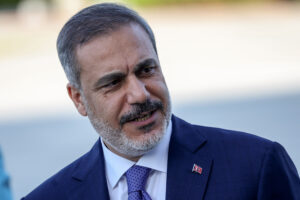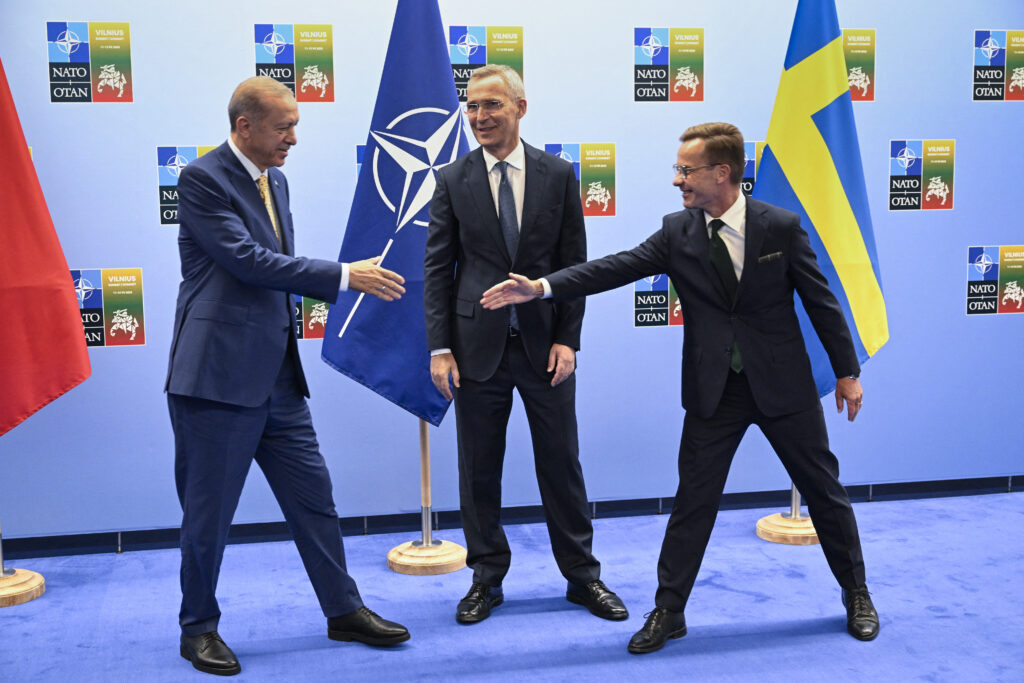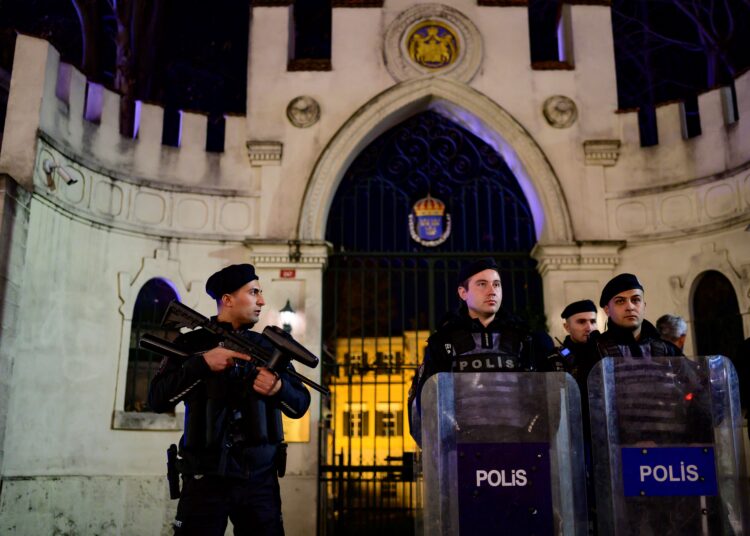Levent Kenez/Stockholm
The Turkish foreign minister has said that despite Turkey’s harsh reactions to Quran burning incidents in Sweden and Denmark, the Islamic world had not responded sufficiently, adding that thanks to Turkey’s initiatives, Islamic countries will now come together to collectively take concrete measures in response to such acts.
During a press conference after he met with Venezuelan Foreign Minister Yvan Gil Pinto in Istanbul on Monday, Turkish foreign minister and former intelligence chief Hakan Fidan responded to journalists’ questions regarding increasing incidents of Quran burning. He said there has been a general rise in xenophobia and Islamophobia in Western countries; however, he specifically pointed out that in the Nordic countries, especially in Sweden and Denmark, disrespecting the Quran has become a trend.
“In the past Turkey had shown serious reactions to these insults, but there was not significant participation from the Islamic world. However, on June 28, after the disrespect shown to our sacred book on the first day of the Islamic holiday, we saw that Islamic countries embraced Turkey’s position and also took a strong stance themselves,” Fidan told journalists.
Fidan also said he had meetings with his counterparts from Iraq, Saudi Arabia and Egypt as well as Libyan Prime Minister Abdul Hamid al-Dbeibeh and that consensus was reached on urgently convening the Organization of Islamic Cooperation (OIC). He said their primary focus now is on determining concrete steps that can be taken collectively, adding, “Because unless the Islamic world presents a unified response on this issue, we believe there won’t be enough awareness in Western countries.”
Fidan did not elaborate on what he meant by concrete steps in his statement.
Meanwhile, the OIC General Secretariat notified Sweden of a decision to suspend the status of the special envoy of the Kingdom of Sweden to the OIC.

The OIC also announced on Thursday that it would hold an extraordinary virtual session for the Council of Foreign Ministers of Member States on July 31, 2023. This special meeting was urgently requested by Saudi Arabia, chair of the 14th Islamic Summit, and Iraq to address the repeated incidents of the desecration and burning of the Quran in Sweden and Denmark.
According to the OIC announcement, the ministers will discuss the implementation of the final statement, based on consultations with member states. The focus will be on finding ways to address these recurring provocative acts, which are seen as deliberate displays of religious hatred and intolerance.
Turkish President Recep Tayyip Erdogan had strongly condemned the Quran burning incidents in Sweden and said allowing such acts would make Sweden’s NATO membership impossible. However, during the NATO summit in Vilnius on July 10-11, his green light for Sweden’s NATO membership sparked criticism at home.
It now appears that Turkey is making efforts to lead collective action against Sweden among Islamic countries.

Turkey’s state-run Anadolu news agency reported that the Ankara Chief Public Prosecutor’s Office had issued arrest warrants for Rasmus Paludan, Salvan Momika and eight others who were allegedly involved in Quran-burning incidents in Sweden and Denmark.
After a cabinet meeting on Monday, President Erdogan made a statement in which he expressed his belief that when Sweden’s NATO membership is voted on in parliament, lawmakers will make their decisions based on their conscience and in the best interests of the country. Some deputies had previously announced that they would cast a “no” vote in response to Swedish authorities allowing the burning of the Quran. The Erdogan government holds a majority in parliament through an alliance with ultra-Islamist and nationalist parties.
However, rejecting Sweden’s NATO membership in parliament could lead to a new crisis between Turkey and the US, and this may not be preferred by Erdogan, especially given the economic challenges and his efforts to prevent the Turkish lira from losing more value against the dollar. Considering his re-election in May, he appears to be pursuing more rational policies rather than the anti-Western discourse from the election campaign.
Swedish Prime Minister Ulf Kristersson on Thursday said they are facing a disinformation campaign from those seeking to exploit the wave of anger directed at Sweden due to the Quran-burning incidents. In a statement on his Instagram account, Kristersson said, “Sweden is the target of disinformation campaigns from states and actors seeking to harm our country and interests.”
The Quran burning incidents in the country have created a challenging “security policy issue,” as stated by Kristersson on Instagram. He added, “These events are later misrepresented, and sometimes direct calls are made to harm our country.”
Swedish Civil Defense Minister Carl-Oskar Bohlin has also warned about the spread of disinformation campaigns targeting Sweden.
However, Swedish security officials hold the view that the increasing Quran-burning incidents do not pose an additional risk to the country’s security. The current risk level of a terrorist attack in Sweden has not escalated, according to Swedish security police Säpo, which employs a scale to assess the likelihood of a terrorist attack, ranging from 1 (no risk) to 5 (very high risk). Presently, Sweden’s security level stands at 3, indicating an increased potential for future terrorist acts. This level was also the same before the Quran burnings took place.
According to Susanna Trehörning, who serves at Säpo, over the past year perceptions of Sweden as a country that doesn’t respect Muslims have grown. She attributes this change to the desecration of holy scriptures, particularly the Quran, in the country, which has deeply offended certain individuals.
Trehörning emphasized that Sweden’s image has shifted from that of a tolerant nation to one seen as hostile towards Muslims in some parts of the world. This perception is largely shaped by various manifestations of scripture desecration and offensive actions against these communities.
On Tuesday the United Nations General Assembly unanimously adopted a resolution condemning violent acts targeting holy books and considering such acts a violation of international law.
The resolution, put forward by Morocco, received widespread support among the 193-member body. It was prompted by a series of Quran burnings and desecrations in European countries, including a recent incident of Quran burning in front of a mosque in Sweden, which sparked international outrage.
The resolution expresses strong condemnation for “all acts of violence against individuals based on their religion or belief, and any acts directed at their religious symbols, holy books, residences, businesses, properties, schools, cultural centers, places of worship, as well as any attacks on religious sites and shrines, all of which violate international law.”












